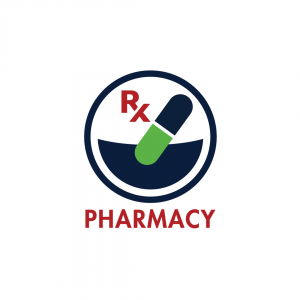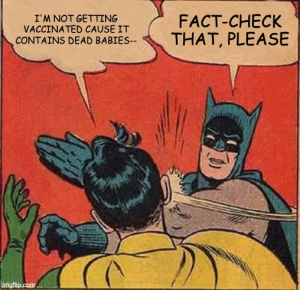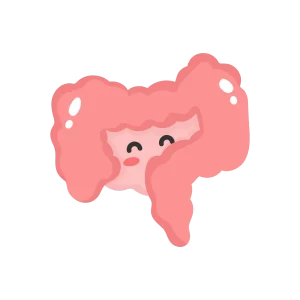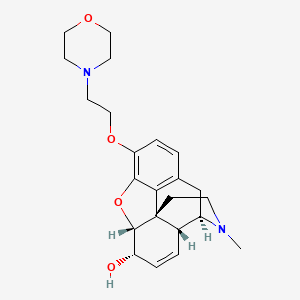Roles of a Pharmacist in a Pandemic

As we all (should) know by now, the COVID-19 outbreak has recently been declared a pandemic by the World Health Organisation (WHO). Does this mean we are now given a ticket to ‘appropriately’ panic?
The cases in Malaysia have risen dramatically since the first wave. This can be due to a few factors such as an increase in the number of people getting tested or mass gatherings. At the point in time, there are many uncertainties.
We’re uncertain of the number of confirm cases by the end of next week.
We’re uncertain of the estimated mortality rate in this country.
We’re even uncertain of the authenticity of the many ‘news’ constantly being churned out announcing the presence of the virus in multiple premises and locations near us.
But there is one thing we can be certain of: that is our roles as pharmacists and the importance of it during this time of panic and misinformation.
As a mother is never a mother only in her own household, I am an avid believer in expanding our roles beyond our workplaces. Thus, this next section also covers areas in and outside of work. This information was taken primarily from the International Pharmaceutical Federation (FIP) Information and interim guidelines for pharmacists and the pharmacy workforce.
1) Understanding the nature of the enemy
Just as intel is crucial in a war, so is information in an outbreak. As one of the frontliners in the fight against this disease, it is paramount that we study and understand how this virus spreads and how it affects our patients. This way, we can carry out methods and procedures to limit its spread. As pharmacists, we can advise patients to seek treatment or get themselves screened when the need arises, instead of flocking to hospitals unnecessarily.
2) Roles as Myth-busters

“Packages from China are dangerous–“
“Take this!”
Information is like a knife, when used right it can result in an array of scrumptious meals; but when used wrongly it can lead to damage and pain. We all have that group chat that has misinformation circulating 24/7. We might cringe or roll our eyes at it, but the heart of the matter is that people who spread these news often feels that they are doing the world a favour. As pharmacists, we should be authenticating and more importantly, teach people around us to find credible sources for these news. We laugh at news about supermarkets running out of toilet paper and frown at pharmacies running out of face masks. These scenarios share one thing in common: they are the results of panic buying. And the reason for this behaviour? Misinformation and ignorance. And this is where we step in.
3) Ensuring that the community is well protected
Community here doesn’t only limit to patients, but also other health care professionals. In a hospital, pharmacists are stewards of the inventory of medications and equipment. It is a pharmacist’s job to ensure that both health care professionals and patients have sufficient personal protective equipment (PPE). We can also ensure that PPE are being put on correctly. In the community setting, pharmacists should ensure that despite the shortages, people in the community are well educated to practise good personal hygiene and social distancing. Government outpatient pharmacy departments are also providing more chronic medications to patients in order to decrease their visits to clinics and hospitals.
__________________________________________________________________
Words from the field:
“Our job is to ensure that there are enough stocks (drug and non drug items) for hospital usage. This is especially important to our end users which includes in-patients and medical healthcare personnel for them to carry out daily operations.
We also ensure the sufficient supply of PPE to the COVID medical team in conducting the screening process of suspected patients.
We also monitor and make sure there are enough stocks to be dispensed as the Selangor State Health Department has recently released the memo for Selangor healthcare facilities to supply 2-3 months’ worth of drugs for outpatients to reduce their frequency of visitation in an effort to reduce patients’ potential exposure to the virus.”
– Amy Tan, Head of Logistic Pharmacy
“Everyday I encounter customers walking into our store to look for face mask and sanitizer. It is good to take of your personal hygiene but what’s more important is to abide to the rule implemented by the government, stay home and only come out if you urgently need any medicines.
I always advise my customers that good hand washing practice is even more important than sanitizing your hands. It is imperative to leave the face mask to those who are in need such as the sick or elderly. Also, I see a lot of panic buying of chronic medicines and I strongly suggest that the public stop doing it. We have sufficient supply for everyone and this irrational act will only deplete the readily available stocks faster as well as causing overstocking that may lead to wastage.”
– Vincent Yeoh, Community Pharmacist
“As of now, there isn’t any confirmed recommended antiviral treatments for COVID-19. Only symptomatic, supportive treatment and continuous monitoring is recommended for COVID-19 patient as per guidelines. However, as a clinical pharmacist, we take on several roles during such outbreak:
1) Educate my nurses about COVID-19 and emphasize the importance of standard precautions for their personal safety and wellbeing
It is important to educate my nurses on the facts of COVID-19. For instance, how it is transmitted, what are the signs and symptoms of COVID-19, the importance of social distancing and limitation of visitors to the ward, the importance of hand hygiene, and putting on a mask to ensure their safety. This allows them to also educate the patient’s visitors on the practice of standard precautions.
2) Keeping myself up to date as the situation progresses
Keeping up to date with the situation is vital as it evolves. I also keeping track of the latest treatment guides to assist our doctors in managing patients who are suspected or confirmed to have COVID-19 (latest treatments, medicines to be avoided, diagnostic criteria, etc). It is also important to communicate with doctors on their needs for COVID-19 treatment (especially on medications since that is my purview) that is best for the patient. We also help source certain medications such as antivirals when requested or queried by doctors.
3) Being a supportive role to other healthcare personnel in the ward
Supportive role here not only covers physical assistance, but also emotional support. Nurses and doctors are always at risk of exposure and this can be stressful. As a clinical pharmacist, I often remind myself that we all are humans and that it is crucial to be there for my comrades when the going gets tough.”
– Renee Au, Clinical Pharmacist
The opinions expressed in the article are the writer’s own and do not reflect the view of MPS YPC.













